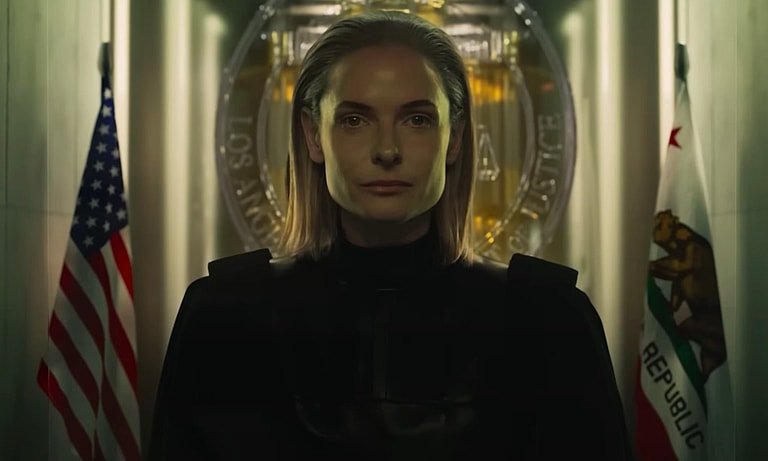Quibi
/Launched to much fanfare online—in part due to the shift in marketing budget allocations necessitated by the ongoing quarantine around the world—Quibi is a new streaming service with much in the way of style. The question, however, is whether a ceiling of ten minutes per episode is enough to give the so-called “quick bites” that stack the platform with enough substance.
The introductory trailer features a song by relative newcomer and Nashville-based pop-rocker Rayelle, asserting quick literally that you’ve seen “nothin’ like this before.” The trailer visual track is timed to the music’s beat, clapping hands and all: the lightning-fast cuts tease you into believing that shorter is faster (and better).
“Coming to a phone near you,” the title card slyly suggests—perhaps especially apropos given the ongoing closure of theatres. Given the aggressively phone-centric platform (there being no tablet or desktop version) and the reliance on the gimmick of having their shows formatted for both horizontal and vertical viewing, in some ways it’s undeniably true that Quibi is offering something new.
What about its trailers, then? The standard trailers seem to run a minute and a half or so, generally; teasers run about half of this. There’s also a section on the service’s YouTube page that focuses on teasers almost uniformly twenty-six seconds in length, and all featuring the service in action. Sound does much to ensconce the audioviewer in the immediate action of each situation—such as outer space, or a US President’s Oval Office briefing—but the overall circumstances themselves are only there as a general movie-like set piece, where the star of each tease is seeing Quibi used on a phone in action.
In addition to a small smattering of dramas (released in small episodes, of course), a lot of Quibi’s programming seems to lean on novel concepts that benefit from rapid-fire, theme-and-variations content.
For example, Barkitecture, besides the charming portmanteau, features some standard up-beat library music as we’re introduced to the idea of a home renovation show centred exclusively on haute-couture doghouses. Beyond the setup, the teaser is just long enough for a stop in the music at 0:27 for a glib joke (“who wants some rosé?”), adding in a dash of comedic trailer convention.
On the drama side of the proceedings, the trailer for Run This City , for example, also seems to use standard music library fare as we’re treated to a dark, hard rock soundtrack as the backdrop to the series’ conceit of a 23-year old mayor in Massachusetts with a possibly criminal background—albeit based on a true story. However, there isn’t all too much in the audiovisual edit offering a singular memorable moment between the sound and visual in this one.
Lastly on our quick tour of this quick service comes Shape of Pasta. What’s notable here is the layering on of multiple modern trailer music clichés—clapping in the beginning and a swelling build at 0:46 and again at 1:18 are brought to with gentle cymbal flourishes, ukulele, and strings. At least this trailer doesn’t fall into using the stereotypical soundmark of the concertina, or other traditional Italian instrument to create “authentic” atmosphere al dente!
While this only represents a few of Quibi’s offerings, one can’t quite shake the feeling that with shrunk-down viewing times comes, to some extent, shrunk-down expectations regarding programming—and to be fair, Quibi is obviously not competing with Better Call Saul; it’s competing with those other free and plentiful forms of short-form entertainment in the world—Instagram, YouTube, and Facebook, among dozens of others.
Time will tell, of course, whether Quibi’s bet as a kind of inbetween platform straddling the viewing habits engendered by social media and the production values of streaming services turns out to be judicious and timely. A separate question is whether that success is predicated on originality—and rather than stake out that originality, the way music is presented and used in these trailers certainly hews perhaps too closely to the well-trodden and familiar, whether that’s due to a budget-mandated adherence to stock music libraries, or the recognition that there’s little franchise equity in the viewing roster beyond the star power the company has managed to recruit.
Regardless, at least in this manifestation, the adage that “less is more” arguably fails this stress test, although it can be informative in helping define generic bounds. And that at a time when people finally may have time to take in greater swaths of entertainment, like the binge-reading Henry Bemis in the classic Twilight Zone episode “Time Enough at Last”!
— Curtis Perry







